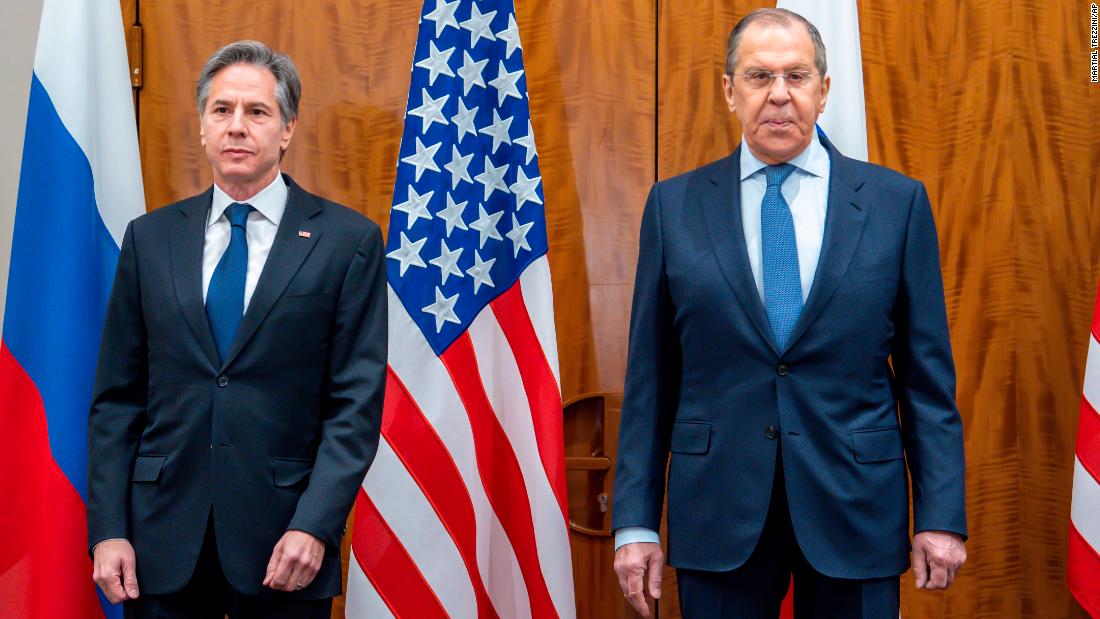No indication of Russian de-escalation after latest attempt to defuse Ukraine crisis
The official said the phone conversation between the two top diplomats lasted about 30 minutes and they described the tone as “professional and fairly candid.”
Blinken told Lavrov that if Russian President Vladimir Putin “does not intend war or regime change,” then it was time to pull back troops and heavy weaponry and engage in serious, diplomatic discussions, the official said.
Lavrov responded that the escalation that the US was claiming was not occurring, the official said, but that it was merely Russia moving troops within its own borders. Blinken raised Russia’s troops buildup in Belarus — which US officials said could reach 30,000 by early February — but there was not an “extensive” exchange on it, according to the official.
Blinken reiterated the US commitment to pursuing diplomacy, officials and State Department spokesperson Ned Price said, and the two top diplomats agreed they should speak again after the US receives a formal written reply from Moscow, which Putin would review.
Russia has demanded that NATO commit to never admitting Ukraine and that NATO countries pull back troops and military equipment from Eastern European countries admitted to NATO since 1997, including Romania and Bulgaria. The US and NATO have said these demands violate NATO’s open-door policy and are non-starters in negotiations with Moscow.
According to Price’s written readout of the call, Blinken “further reiterated the US commitment to Ukraine’s sovereignty and territorial integrity, as well as the right of all countries to determine their own foreign policy and alliances.”
“The Secretary urged immediate Russian de-escalation and the withdrawal of troops and equipment from Ukraine’s borders,” the readout said. “He emphasized that further invasion of Ukraine would be met with swift and severe consequences and urged Russia to pursue a diplomatic path.”
The US did receive a written response from Russia on Monday, but the Kremlin said Tuesday that it was not its “main reply” to the US over Russia’s security concerns, saying there had been a “mix-up.”
On the call, Lavrov clarified that it was not a formal response to the US written proposals, the official said. This official and a second senior State Department official said they understand other NATO and European countries had received letters as well.
The second official said that the “continued engagement on the Russian side is evidence” that Russia has not fully shut the door on diplomacy.
“I do think they agree that ideas in those in that non paper could be the basis for a constructive conversation about how you enhance security in Europe,” they said.
This story has been updated with additional reporting and background information.
![]()


